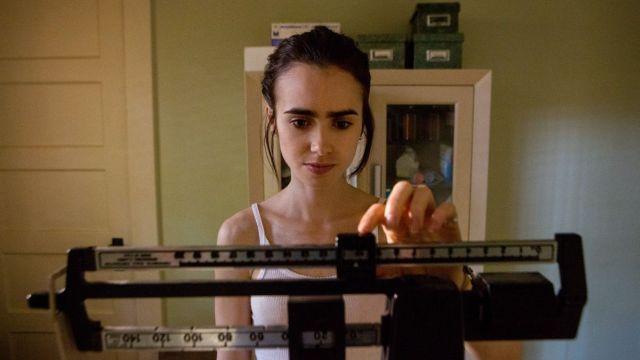Rank: 4/5
Rank: 4/5
Eating disorders are frightening mental illnesses that unfortunately plague many people today. Netflix recently released an original film, “To the Bone,” that tackled this harsh reality in a refreshing and real manner. Lily Collins portrays the main character, Ellen, with stunning accuracy.
The movie begins with Ellen returning to her father’s home upon being kicked out of yet another inpatient program. She is greeted by an overbearing and chatty stepmother, who soon gives Ellen an ultimatum. She must visit the acclaimed Dr. Beckham, played by Keanu Reeves, and agree to follow his treatment plan, or she won’t be allowed to live with the family again.
The no-nonsense, untraditional Beckham requires Ellen to move into a cozy Los Angeles home for patients battling various eating disorders. There are six other people who also live in the home, marked by varying degrees of health and backgrounds.
It’s easy to see how Ellen struggles with an unstable home life, and the detrimental effect this has on her struggles with her weight. Ellen is portrayed as a well-rounded and dynamic individual with deeper issues than her eating disorder, making her more relatable to the audience in a situation that not everyone can relate to easily.
Luke, a former professional dancer, is the only male patient in the home and is just as ridiculous as he is charming and funny. He sets out to help Ellen, and even brings her on a date, albeit dysfunctional. The movie becomes lighthearted and almost “normal” during moments like this, which is refreshing and warming to see in contrast to the debilitating mental illnesses that rule the character’s lives.
One of the reasons I enjoyed the film so much was the acting. Every character delivered a performance that felt authentic and impactful; even the cheesy Keanu Reeves made a caring, convincing doctor.
“To The Bone” is a step above other Netflix originals, especially for its indie filming style, giving an artistic backdrop to a sensitive topic. The significant transformation Lily Collins underwent to fulfill the role adds to her performance and the film’s believability. Collins, an eating disorder survivor in real life, lost a significant amount of weight for the role under the supervision of a nutritionist, in addition to using makeup, baggy clothing and lighting to make her appear gaunt.
The ending was satisfying, bringing an emotional, jarring and much-needed close to Ellen’s tumultuous journey. The film serves as an important dialogue regarding the danger of eating disorders.








